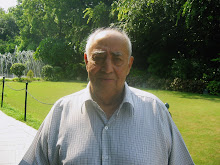17 York Road was an interesting place. Pt. Jawaharlal Nehru, the first Prime Minister lived there. He occupied the house much before independence on becoming the vice-chairman of the Viceroy’s executive council. This was the first step towards India’s freedom and gaining the dominion status on August 15th 1947.
I joined as an Assistant to the VC, as Nehru was called in the bureaucratic files, on May 12 1947.I was selected for the assignment by Mrs. Vijay Laxmi Pandit, Nehru’s sister as he was busy on the day when I came in for a “meeting”.
It was a double storey house with a big entrance hall, a passage that led to a big dinning room, a kitchen and a pantry. On the first floor there were three bed rooms, one of which had a small office room attached to it. This was used by Nehru who worked late at night. Nehru gave dictation to Mathai at night which was transcribed by Mathai in the small office room. Rest of us worked in the hall on the ground floor. I prepared the news file that comprised all that the English press said about Nehru and other topics of interest to him: mainly contemporary politics. I could not finish my work till late in the evening. Because of this receiving important guests for the evening fell to my lot.
During my stint with Nehru some interesting people came to visit him, Dr. Homi Bhaba, Sir Chandulal Trivedy ,who was a governor, the prime minister of Nepal and Sheikh Abdullah on being released from jail. Hyderabad and Kashmir were hot topics even when negotiations were being held with Mountbatten about India’s future. In Srinagar, the Maharaja Hari Singh, did not meet any Indian leader and decide the states future till the end and in Hyderabad the Nizam had indicated his intention of remaining out of the Indian union He sent a British lawyer, Sir Monckton, QC to argue his case. Both these Princes were loath to join the Indian Union as they felt that they could survive as independent rulers after the British left. I had a chance to ask Ram Chand Kak, the last Prime Minister of the Maharaja, why did they not join the Union of India before Pakistan invaded Kashmir. His answer surprised me. He said who could believe before August 15th, 1947 hat the British would relinquish power in reality. The elite thought that the British would retain their influence in some form or the other in the new dispensation. Most of the Princes thought that they could be the third force in independent India. In the Princes Chamber the Nawab of Bhopal was working to that end with the active connivance of Mohammad Ali Jinnah who was very keen to build a “corridor” to link two separated parts of Pakistan, a distance of about 1600 Kilometres.
The government of Nehru faced some of the toughest problems of Independent India within months of its taking over the reigns of power. Within forty five days of independence it had to face an invasion from Pakistani hordes backed by the Pakistani army, get 600 and odd princes to join the mainstream union of India, try to rehabilitate four million refugees who were destitute, procure food to meet a shortage of about ten million tons. There was no foreign aid available then.
Tuesday, March 17, 2009
Subscribe to:
Post Comments (Atom)

No comments:
Post a Comment